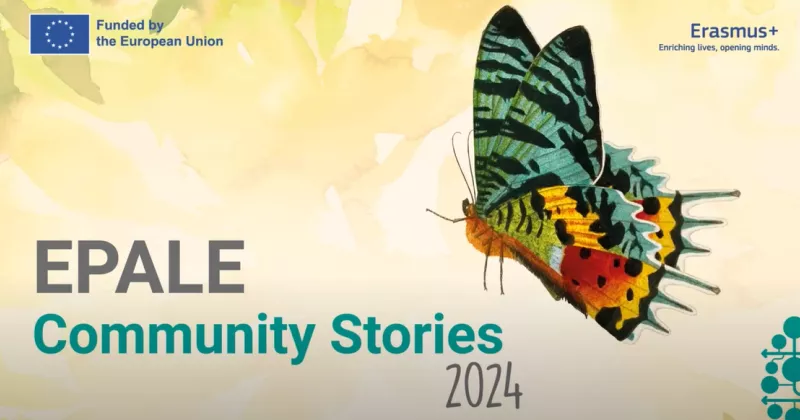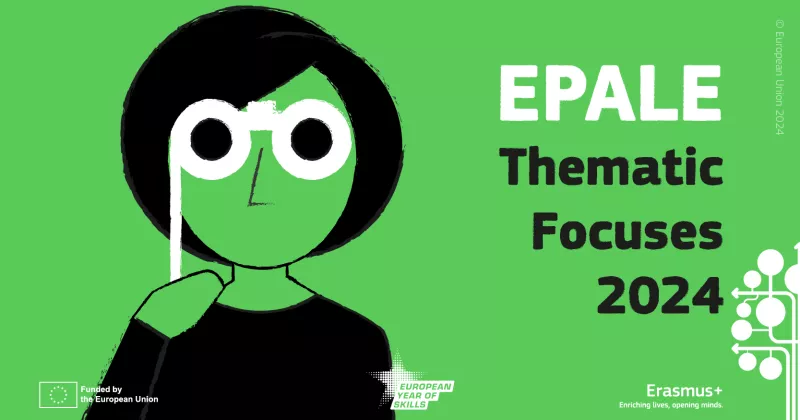Promoting literacy for low-skilled adults in Southeast Europe and the implication of learning partnerships


Most Southeast European countries have low favourable conditions for increasing participation in adults in learning. The majority of them face – not necessarily for the same reasons – major barriers to implementing policies to increase the number of adult learners. These barriers generally appear at all levels of adult education, but the most significant ones are those in literacy programmes for the low skilled.
Literacy programmes for the low skilled – back in the policy agenda
In the last decade, the development of literacy policies and targeted initiatives for adults with low skills has largely passed unnoticed in Southeast Europe. Despite the existing policies and strategies, most countries in the area do not place literacy for low-skilled adults as a priority. However, the latest PIAAC results, the high influx of migrants and refugees, the rising unemployment and the low participation rates in adult education (particularly among vulnerable social groups) have placed the issue back in the policy agenda.
No specific framework for literacy training providers
Although legal acts in the countries include a chapter on adult learning providers, there are no clear standards with regard to their educational activities (curricula, target groups, accreditation, and staff). Literacy providers in particular, their outreach and target groups, their mission and objectives, as well as the possible differentiation of the available curricula and programmes, are not seen as a priority on the policy agenda. In most cases they are treated as an integral part of basic education provision.
Positive elements and practices in Southeast Europe
When we look closer at some of the existing opportunities in the region we can identify some positive elements in country-specific policy documents. Some of them have to do with institutional issues such as:
- transparency of provision;
- quality of provision;
- attuned offer on different levels;
- possibilities for recognition and accreditation of prior learning;
- existing learning culture.
Other opportunities are dealing with making learning more accessible for learners, for instance by:
- providing educational vouchers;
- providing possibilities for educational leave;
- anchoring educational provision in local and regional structures.
A need for systematic approaches
Most of the countries in the region lack systematic approaches to the problem of literacy and have many shortages in the development and implementation of literacy initiatives. There are certain weaknesses that can be identified in the literacy of low-skilled adults in Southeast Europe, such as lack of government support, lack of anchoring of initiatives with stakeholders, lack of competent personnel, lack of sustainability of initiatives and lack of perceived purpose for learning. Yet, there is an awareness of the importance and benefits of adult literacy and shared public opinion that literacy is a powerful tool to solve many societal problems and foster development in different areas.
Focus on actual social needs
In the face of the socio-economic crisis and the more or less turbulent political verve in Europe, not many countries in the region develop forward-looking educational policies based on actual social needs. Instead, they often take in ready-to-realise mandates, largely from international organisations like the OECD, the World Bank and the European Commission, as prerequisites for membership in the EU. Even if this development is advocated by policy makers as a way to grab the various opportunities of globalisation, it certainly makes us wonder whether the overthematisation on certain types of education and training has shifted policy priorities. It also reveals a deficit in social dialogue and decision making processes, as the countries in the region are becoming more reliant on EU funding and the resolutions that come along with it.
Policy recommendations
As the problems of low-skilled adults in the region are multidimensional, we need combined measures, tailored to their situations. Targeted approaches organised within learning partnerships show the complementary measures needed to support low-skilled adults in overcoming their learning barriers. Here are some recommendations that could potentially target existing policies for increasing and widening participation of low-skilled adults in literacy programmes:
- Revising the research agenda is vital. What needs to be addressed in future research is whether existing policy and practice instruments are effective in contributing to the achievement of any national targets to raise participation in adult education, and more particularly in literacy programmes, for low-skilled adults in the region.
- A unified lifelong learning strategy is also paramount. Especially for post-communist countries like Bosnia & Herzegovina, Kosovo, Montenegro, Serbia, and Albania this will replace the existing fragmented policies, and reassess the relation between adult learning and vocational training.
- Promoting varied modes of cooperation among stakeholders. These are the ministries, local governments or enterprises. This could be facilitated by partnership building.
- Better outreach strategy needs to be implemented. With targeted information, it is important to do visits in deprived areas with people with ‘invisible’ educational needs (Roma, unemployed, migrants). Outreach work in this respect may include targeted public information campaigns such as adult learning weeks, adult literacy campaigns, targeted information work of public libraries and museums, and targeted TV spots.
George K. Zarifis is Assistant Professor of Continuing Education in the Faculty of Philosophy, Department of Education at the Aristotle University of Thessaloniki, Greece. His research interests focus on adult educators' training and professionalisation, university continuing education, and comparative examination of adult learning and vocational education and training (VET) policies and practices in Southeast Europe.





I agree
I fully agree with these reflections. I think of my experience as a teacher of Italian language and literature and history in adult evening classes in Italian technical and professional institutes. Learning has made the students aware of their skills. Knowledge has made them free. Women have emancipated and many men have abandoned prejudices and preconceptions (eg on man / church relationship, on immigration, on Islam, etc.). Knowledge has triggered the mechanisms of the soul that has allowed them to be conscious, free and thinkable, rational and passionate citizens at the same time. Adult education is really a resource and governments must increasingly implement it, avoiding inconclusive issues.